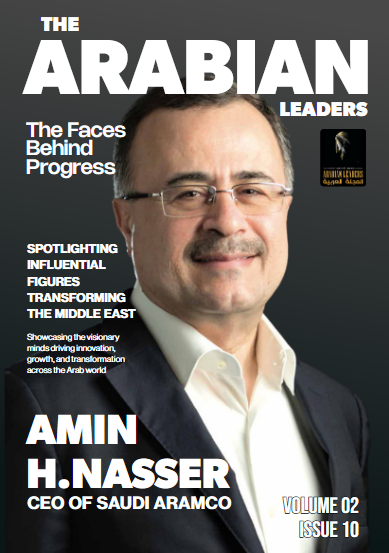Rajaa al-Sanea: Redefining the Literary Voice of Saudi Arabia
Introduction: A Bold Voice Emerges
Rajaa al-Sanea is not just a novelist; she is a cultural force who has challenged long-held taboos in Saudi Arabia and the Arab world at large. With her 2005 debut novel Girls of Riyadh, she cracked open a tightly sealed social sphere and dared to narrate the private lives of Saudi women in a way never seen before. The novel became an instant literary sensation—widely discussed, critically praised, and also widely banned. For many, it signified a cultural and generational shift in Saudi Arabia, while for others, it was controversial for its candid approach. Regardless of perspective, one thing remains certain: Rajaa al-Sanea gave voice to a hidden narrative.
Early Life and Education
Born and raised in Riyadh, Saudi Arabia, Rajaa al-Sanea grew up in a society rooted in tradition, patriarchy, and conservatism. Yet, her upbringing was also intellectually rich. Coming from a family of educated professionals, Rajaa had access to books, education, and ideas that helped shape her early worldview. Encouraged by her parents to pursue her interests, she began writing from a young age.
Rajaa’s academic journey reflects a fascinating blend of art and science. She pursued a degree in dentistry at King Saud University, reflecting a typical professional path encouraged for women in conservative societies. However, her passion for literature never waned. While completing her dental studies, she secretly worked on a manuscript that would later transform her life and the literary world around her.
After graduating from King Saud University, Rajaa moved to the United States to continue her postgraduate education. She earned a master’s degree in Oral Sciences from the University of Illinois at Chicago, further deepening her knowledge in the field of healthcare. This dual identity—scientist by training, writer by passion—adds complexity to her public persona.
Girls of Riyadh: A Literary Earthquake
Published in Arabic in 2005, Banat al-Riyadh (Girls of Riyadh) was nothing short of revolutionary. Written in the form of a series of emails sent weekly to a fictional mailing list, the novel chronicles the lives of four upper-class Saudi women navigating love, career, family expectations, and societal constraints. Through characters like Gamrah, Lamees, Michelle, and Sadeem, Rajaa tackled issues that had long been considered off-limits in public discourse—divorce, dating, identity, and even sexual awakening.
What made the novel even more subversive was its language. Instead of classical Arabic, Rajaa wrote in colloquial Saudi dialect, instantly relatable and accessible. This stylistic choice made the novel feel real and raw, breaking away from the formal traditions of Arabic literature.
Girls of Riyadh was banned in Saudi Arabia upon publication. Yet, that only fueled its popularity. Copies were smuggled, photocopied, and circulated among readers eager to consume this unheard narrative. The book was soon translated into English by Marilyn Booth and published internationally, garnering global acclaim and controversy in equal measure.
Global Reception and Controversy
The novel’s reception outside the Arab world was generally enthusiastic. Critics in the West hailed it as the Saudi equivalent of Sex and the City, although this comparison was simplistic and culturally reductive. Still, it positioned Rajaa as a rare insider offering a glimpse into an opaque society.
The English translation, however, brought its own drama. Marilyn Booth, the translator, accused the publishers of editing her work without consent, watering down her nuanced translation in favor of a more commercial tone. This dispute highlighted the tension between authenticity and marketability in global literature.
Back home, Rajaa faced a wave of backlash. Conservative critics accused her of corrupting values, misrepresenting Saudi culture, and promoting Western ideals. Some religious authorities even issued public condemnations. Despite these pressures, she refused to apologize or backtrack, continuing to stand by her work and the voices of the women it represented.
Feminism, Identity, and Cultural Dissonance
Rajaa al-Sanea’s feminism is both implicit and complex. She does not overtly declare herself a feminist in the Western sense, but her writing undeniably centers female voices, questions male-dominated authority, and advocates for personal freedom. She articulates a distinctly Saudi feminist lens—one that is pragmatic, gradual, and culturally rooted.
The protagonists of Girls of Riyadh are not radicals; they are young women seeking love and meaning within the bounds of their cultural reality. This makes their journeys more relatable and poignant, as readers can see themselves in the struggle between tradition and modernity.
Moreover, Rajaa’s work tackles the notion of dual identities—particularly for those who exist between two cultures. Many of her characters, like Michelle (who is half-American), grapple with questions of belonging, alienation, and hybridity. These themes resonate with a global generation of Arabs straddling East and West.
Life Beyond the Novel
While Girls of Riyadh remains her most well-known work, Rajaa al-Sanea did not vanish from public life after its publication. She continued her education, built a career in dentistry, and maintained a presence in cultural circles. She has spoken at numerous literary festivals, universities, and conferences, engaging with themes of identity, literature, and women’s rights.
Despite the passage of nearly two decades since Girls of Riyadh was published, Rajaa has not released a second novel—an absence that has only deepened the intrigue around her. Some speculate that the backlash may have influenced her to retreat from fiction. Others believe she may be carefully crafting her next literary move.
The Legacy of Girls of Riyadh
It’s impossible to overstate the cultural impact of Girls of Riyadh. The novel marked a generational milestone for many Arab women. For the first time, they saw characters who looked and sounded like them—who loved, cried, failed, and resisted in ways that felt profoundly real.
The book paved the way for a wave of female Arab writers willing to challenge taboos and tell stories in new voices. Its epistolary structure inspired blogs and social media pages centered on anonymous confessions and social critique. In a way, Rajaa’s novel predated and foreshadowed the explosion of online platforms that democratized storytelling across the Middle East.
In universities and literary courses, Girls of Riyadh has become a case study for discussions on gender, censorship, translation, and postcolonial literature. Its very existence remains an act of resistance.
Influence on Saudi Society and Women’s Movement
While change in Saudi Arabia is slow and often state-led, the role of cultural products like Girls of Riyadh cannot be ignored. Rajaa al-Sanea contributed to a discourse that prepared the ground for larger societal shifts, especially in the realm of women’s empowerment.
In the years since the novel’s release, Saudi Arabia has seen monumental changes. Women can now drive, attend sporting events, and travel without male guardianship. Female entrepreneurs and creatives are increasingly visible. Though these reforms are state-sanctioned, they also reflect a deeper cultural readiness—one that voices like Rajaa helped cultivate.
Her novel gave women the language and representation to articulate their own experiences. And in doing so, it helped shift public perception about what was possible.
Challenges Faced by Women Writers in the Gulf
Rajaa al-Sanea’s journey is emblematic of the broader struggles faced by women writers in the Arab Gulf. Despite access to education and technology, female authors continue to battle censorship, societal judgment, and the limitations of patriarchy.
Writing about love, desire, or personal freedom can lead to ostracism. Success abroad can be viewed with suspicion at home. Many writers resort to anonymity or adopt pseudonyms to avoid backlash. Rajaa, by using her real name, set a courageous precedent.
She showed that it is possible to be both a loyal citizen and a critical voice, both modern and traditional. This nuanced approach is crucial for a generation of Arab women who wish to honor their roots while redefining their futures.
The Next Chapter: What Lies Ahead?
The literary world continues to wait for Rajaa al-Sanea’s next move. Will she publish another novel? Will she shift into screenwriting, essays, or memoir? The mystery adds to her allure.
Given her unique positioning—young, female, Saudi, internationally recognized—she remains one of the most important cultural figures to watch. In a region where artists often navigate complex political and social landscapes, Rajaa al-Sanea has already proven she has the courage, intellect, and artistry to make an impact.
Conclusion: A Literary Trailblazer
Rajaa al-Sanea’s story is one of courage, creativity, and cultural disruption. With Girls of Riyadh, she accomplished what few writers in the Arab world have: she made the invisible visible, the private public, and the taboo speakable.
Her work has sparked debate, inspired change, and ignited a conversation that continues today. Whether or not she ever pens another novel, her legacy is firmly etched in the annals of modern Arabic literature.
In a world hungry for authentic voices, Rajaa al-Sanea stands out not just for what she wrote, but for the courage it took to write it.








